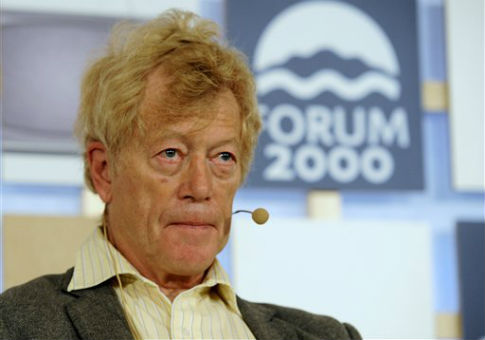In September 2012, the Times of London reported that authorities in Rotherham, England, had intentionally ignored reports about child sexual abuse for fear of being labeled racists. The reports were about British men of Pakistani descent, and local law enforcement feared prying too much into the affairs of an immigrant community.
As a result, it has been estimated that over 1,400 girls were sexually abused from 1997 to 2013—and the Rotherham case is not an isolated incident. There have been at least eight other cases of sexual abuse networks in Britain, all of them involving Muslim men from immigrant communities who, often with the help of drugs, raped underprivileged British girls.
How could this happen in an enlightened, civilized country? The United Kingdom is the nation that, in practice, invented the separation of powers, parliamentary democracy, and the rule of law; and it has exported these values around the globe to India, Canada, Australia, New Zealand, and America among others. From Britain springs civilization, not barbarism. Yet there are few words more apt than "barbaric" to describe the cases of abuse now coming to light.
So what’s rotten in the state of Britain?
Roger Scruton, writer, philosopher, and a senior fellow at the Ethics and Public Policy Center in Washington, D.C., takes up this question in his new novel, The Disappeared. In addition to his extensive non-fiction writings on contemporary culture, philosophy, beauty, architecture, politics, and religion, Scruton has also published a handful of novels, including Notes from Underground, based on his experiences working in the dissident subculture of Soviet-ruled Czechoslovakia in the mid-1980s.
In The Disappeared, Scruton tells the stories of three principal characters. There is Laura Markham, a consultant who is kidnapped from her rented apartment; Justin Fellowes, a young man who falls in love with Muhibbah Shahin, an Afghan refugee; and Stephen Haycraft, a literature teacher at St. Catherine’s Academy who tries to protect one of his students who lives with her foster mother in local public housing, and who is being sexually abused. Scruton rounds out the cast with various other characters, including Muhibbah’s brothers, a sexually abusive foster father, and a social worker whose belief in multiculturalism makes distinguishing between good and evil impossible.
The main action plays out in Whinmoore, a fictional town in northern England. Scruton describes a landscape dominated by warehouses and the ruins of old Victorian homes. Haycraft, the teacher, sometimes sits in the old Victorian chapel at school alone since it is no longer in use. Moreover, the council housing, Angel Towers, is ironically named: its two buildings are the stomping grounds of gangsters, pimps, slave traders and drug dealers.
Evil persists in two ways in Whinmoore: through the refugees who begin a productive human trafficking business from within the public housing of Angel Towers, and through the public British authorities whose indifference allows the enslavement and rape of young girls.
Most to blame for this horrific debacle is the absurd local bureaucracy. The superintendent of police explains in cold, rational terms that "we live in a multicultural community … and we are committed to sensitive policing. Different communities and different cultures among us see things in different ways." This is true, so far as it goes, and would not be a problem, except for the fact that this attitude has the incalculably harmful effect of preventing the police from upholding the law equally. Scruton has a penchant for dark irony: the police are racist even if they appear not to be because they do not extend the law equally to immigrants.
If not the public authorities, who, then, is left to defend the girls? This question looms over the story. Some of Scruton’s most complex psychological descriptions regard the young men, Justin and Stephen, who feel called to protect but know not how. Assertiveness and courage are not quite at home in a world dominated by bureaucrats, yet without those two virtues, Scruton implies, beauty cannot be protected, and therefore cannot be at home in the world either. Beauty ultimately disappears when left to fend for itself.
Indeed, to have disappeared is the defining quality of this novel. Scruton’s story asks his readers to consider how to live a life of meaning in a world from which so much of value has disappeared: customs, religion, law, virtue, beauty, education. Readers may recognize something of themselves in his characters. Indeed, The Disappeared is an occasion for the contemporary reader to reflect on his own standing in a world defined by absence more than presence.
